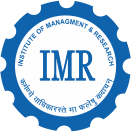Programmes Navigation
Integrated MCA (5 Year)
About Programmes
IMCA is Integrated MCA Program. IMCA is five year’s program approved by AICTE New Delhi and Post Graduate Degree is awarded by affiliating KBC North Maharashtra University, Jalgaon. This program is proper blend of both theoretical and practical knowledge. It provides sound practical skill from basic that is required in IT Companies. In this five year’s program, first three years are under graduate (UG) and the last two years are of post-graduation(PG). A student is not allowed to leave this program during five years. He/ She has to complete five years of this program to receive post-graduation degree of IMCA course.
About Programme
|
Course Name |
Duration |
Intake |
Affiliated with |
Fees |
Inforamtion Broucher |
|---|---|---|---|---|---|
| Master of Computer Application [Integrated] (IMCA) |
5 Year |
60 |
KBC NMU, Jalgaon | View Fee |
Admission Process
Those who want to enroll to MCA (Integrated) Program should go through the following admission process:
- A Common Entrance Examination procedure will be adopted for admission to MCA(Integrated)
First Year Course.
- Eligibility for Appearing for Appearing MAHB.BCA/BBA/BMS/BBM/Integrated
MCA/Integrated MBA –CET.
- Passed 10 + 2 (HSC) or its equivalent examination (As per the AICTE APH 2024 - 2028)
- Candidates appearing for 10 + 2 (HSC) or its equivalent examination are also eligible to appear for CET.
- Online registration of application and uploading of required documents by the Candidate for admission on website.
- Eligibility for Appearing for Appearing MAHB.BCA/BBA/BMS/BBM/Integrated
MCA/Integrated MBA –CET.
- Documents verification and confirmation of Application Form for Admission by online mode.
- Display of the provisional merit list for Maharashtra State/All India candidates on website.
- Submission of grievances if any, for all type of Candidates.
- Display of the Final Merit lists of Maharashtra State/All India candidates on website.
Eligibility
Passed 10+2 examination with Mathematics/ Statistics/ Accountancy as compulsory subjects. Obtained at least 45% marks (40% marks in case of candidates belonging to reserved category) in the above subjects taken together.
Objective of Program
Students of the program will possess strong fundamental concepts in mathematics, science, engineering and Technology to address technological challenges.
- Develop a deep understanding of computer science and its real-world applications, including programming languages, data structures and algorithms, computer networks, databases, and software engineering.
- Gain practical experience in software development by designing, implementing, and testing software systems using industry-standard tools and technologies.
- Build critical thinking and problem-solving skills to tackle complex challenges in computer science and develop innovative solutions with cutting-edge technologies.
- Develop effective communication, collaboration, and teamwork skills to work effectively in diverse and interdisciplinary environments.
- Acquire knowledge and skills in emerging areas of computer science, such as artificial intelligence, machine learning, computer vision, cybersecurity, and big data analytics, to stay current with the rapidly evolving technological landscape.
Programme Outcomes
- PO1: Understand and apply mathematical foundation, computing and domain knowledge for the conceptualization of computing models from defined problems.
- PO2: Ability to identify, critically analyze and formulate complex computing problems using fundamentals of computer science and application domains.
- PO3: Ability to transform complex business scenarios and contemporary issues into problems, investigate, understand and propose integrated solutions using emerging technologies.
- PO4: Ability to devise and conduct experiments, interpret data and provide well informed conclusions.
- PO5: Ability to select modern computing tools, skills and techniques necessary for innovative software solutions.
- PO6: Ability to apply and commit professional ethics and cyber regulations in a global economic environment.
- PO7: Recognize the need for and develop the ability to engage in continuous learning as a Computing professional.
- PO8: Ability to understand, management and computing principles with computing knowledge to manage projects in multidisciplinary environments.
- PO9: Communicate effectively with the computing community as well as society by being able to comprehend effective documentations and presentations.
- PO10: Ability to recognize economic, environmental, social, health, legal, ethical issues involved in the use of computer technology and other consequential responsibilities relevant to professional practice.
- PO11: Ability to work as a member or leader in diverse teams in multidisciplinary environment.
- PO12: Identify opportunities, entrepreneurship vision and use of innovative ideas to create value and wealth for the betterment of the individual and society.
Programme Structure
- Program Structure and Syllabus of F.Y. Integrated M.C.A. (W.E.F From 2024-25)
- Syllabus of S.Y. Integrated M.C.A. (W.E.F From 2025-26)
- Course Outcome of Integrated - MCA Program (W.E.F. From June-2024)
- Course Outcome of Integrated - MCA Program (June-2023)
- Course Outcome of Integrated - MCA Program (June-2021)
Course Outcome
Career & Job Opportunities
Graduates of the MCA Integrated program can pursue several career paths, including software developer, database administrator, data analyst, artificial intelligence engineer, and cybersecurity analyst. The program provides a solid foundation for employment in various industries, including technology, finance, healthcare, and education.
- Software Developer:Having a robust grasp of programming languages such as Java, C++, and Python, which are crucial abilities for software development, is a key benefit for graduates of the BCA-MCA Integrated program.
- Database Administrator:Graduates of the BCA-MCA Integrated program have a good understanding of database management systems, which is a critical skill for this career.
- Data Analyst:The BCA-MCA Integrated program provides students with a strong foundation in programming languages like Java, C++, and Python, which are essential skills for software development.
- Artificial Intelligence Engineer:Graduates of the BCA-MCA Integrated program have a strong foundation in AI concepts and programming languages, which is essential for this career.
- Cybersecurity Analyst:In today’s digital world, having a good understanding of cybersecurity concepts and techniques is a valuable skill that graduates of the BCA-MCA Integrated program possess.
